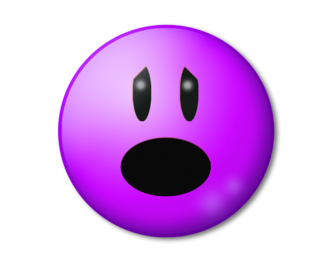Anxiety
The Fascinating Dynamics of Dread
Would you like your electric shock now . . . or later?
Posted January 20, 2016

If you’re anticipating something positive, you’re probably motivated to summon all your patience to wait for it—and sometimes for extended time periods. It may be counter-intuitive, yet in certain instances such waiting can itself be gratifying. Consider Carly Simon’s song “Anticipation,” the old Heinz ketchup ads, and—especially—recent research pointing in the opposite direction as regards awaiting something highly aversive. In this post I won’t be reviewing ketchup commercials, but I will be exploring some intriguing research on dread-infused anticipation.
The main point here is that if what you’re expecting is something you dread, your anxiety over it can be downright nerve-wracking. Say, you’re on pins and needles to find out about your recent MRI. In such a case your strongest need is to alleviate the nail-biting nervousness directly related to not yet knowing its results. So naturally you want your emotionally torturing trepidation over with, and ASAP—whether what you learn quells your anxiety or, in fact, confirms it. If the latter, at least now you know what you’re up against and what lies ahead of you.
And the same might well be true if your boy- or girlfriend, with whom you’re deeply enamored, left a message that they needed to talk—and their feelings about you had begun to feel doubtful. As terrified as you might be that they decided to break up with you, you’d probably be driven to get back to them as swiftly as you could, if only to resolve your so-painful agitation. (Call this, if you will, the “pins-and-needles syndrome.”)
The crowning irony here is that the very definition of “dread” is something that you feel (and I quote) “extreme reluctance to meet or face” (Merriam-Webster). Still, the panicky emotions that go with feeling in limbo about that which frightens you can compel an overwhelming desire to get them resolved post haste.
Moreover, sometimes you’re ready to face what you dread because not doing so subjects you to something that feels even more hazardous. If you’re being chased by a grizzly bear and the only way to escape it is by jumping into a river, then even if you feel panicky about hurling yourself into the water—particularly if you don’t know how to swim (!)—you’ll be “emotionally prepared” to jump straightaway.
A similar situation might involve getting on a plane for a work assignment, despite your fear of flying—or, if your phobia is public speaking, giving a formal talk in front of all your colleagues. Despite the terror that such behaviors might evoke, if refusing to tackle these personal fears could put you at serious risk for getting fired from your position—which you’re deeply committed to and your family is totally dependent on financially—you’ll be motivated to, well, take the plunge. The point here is simply that anxiety can drive us toward an action that induces great fear if the alternative feels even more alarming.
Now, let’s look at some research in this domain that supports—and extends—the above generalizations:
In a piece by the news staff at Science 2.0 (11/22/13) entitled “Cognitive Dread: People Would Rather Get an Electric Shock Than Think About Going to the Dentist,” the work of Dr. Giles Story and his research team at Imperial College London (2013) is pointedly described. And the results of their study reveal something pivotal about how most of us are led to cope with our deepest fears. The researchers’ conclusions are summarized this way: “Faced with inevitable pain, most people choose to get it over with as soon as possible.” And doubtless, for most of us that’s how aversive the anticipatory experience of dread feels.
What’s most fascinating here is the empirical finding that, given the choice, the majority of people will actually opt to accelerate the onset of pain and that, when offered, some of them are even willing to endure a higher level of pain just to avoid waiting for it. For what this indicates is that the very expectation of pain can cause a great deal of misery.

Further elaborating on these results, consider the following characterization: “If people . . . take into account the dread they may experience in waiting for a painful event, the prospective unpleasantness of a prolonged period of dread may even exceed the unpleasantness of the pain itself. The researchers show that, in such cases, the prospect of pain becomes more unpleasant the more the pain is delayed, and people will therefore choose to [minimize their wait and simply] experience unavoidable pain.”
Additionally, these “dread dynamics” enable us to better understand why most people are disinclined to put off a scary operation once they perceive its necessity. Why, after all, worsen a feeling of dread by putting off its inevitability? As Adam Kucharski, another author who, in his essay “The Science of Dread: Anticipating Pain Makes It Worse” (the conversation.com, 12/10/13), describes the conclusions of Dr. Story and his colleagues: “The anticipation of pain [may] trigger the same responses that we experience during an actual pain event.”
Reviewing a paper on the psychological—or better, neurobiological—dimensions of dread (namely, “Neurobiological Substrates of Dread," Science, 312, 754-758), writer Helen Pearson makes the almost identical point: “Expecting something horrible can be horrible in itself” ("Dread Prompts Pain in the Brain," in "Nature: International Weekly Journal of Science, 05/04/2006). In this particular investigation, led by Gregory Berns and his co-workers at Emory University School of Medicine, it was found that “the paralyzing dread one feels before an injection or tooth extraction fires up some of the same brain regions involved in feeling pain itself.” And, doubtless, we’ve all experienced the agony of ruminating over something even before we actually had to endure it.
That’s why, if waiting for a painful procedure is required, any distraction that you can put in place (i.e., anything that can draw attention away from what you’re dreading) can assuage your anticipatory pain (cf. anticipatory anxiety). Furthermore, Tor Wager, a psychology professor at the University of Colorado who has also investigated the way human brains process pain, echoes this point in stating (as quoted by Pearson): “Expecting an emotional event is [my emphasis] an emotional event.”
In none of the studies I reviewed, however, did anyone compare the woeful experience of dread to the preferred sequence of presenting good vs. bad news. However oblique, I see these two topics as related, and as advancing complementary conclusions about how emotions effect our decision-making.
This is not the place to scrutinize the (frankly limited) research on this kindred phenomenon. So I’ll simply follow the lead of Art Markman, a fellow blogger at Psychology Today. In his post on the subject, he reviews an experiment undertaken by Angela M. Legg and Kate Sweeny of the University of California, Riverside called “Do You Want the Good News or the Bad News First? The Nature and Consequences of News Order Preferences” (Personality and Social Psychology Bulletin, 40, 2014, 279-288).
The conclusion of this study was that in situations where the news to be given is mixed, most people (i.e., 78% of those tested) preferred to first receive the bad news. And this was because they thought they’d end up feeling better if they were “hit” with the negative message initially—getting it out of the way so that what they heard next might leave them in a more positive mood. And, indeed, they were right. As contrasted to those who elected to first get the good news, they ended up not only feeling better but were less worried in general.
What we can deduce from all this is, I think, fairly obvious. A primary motivating force in human nature is to avoid anxiety—unquestionably one of our most distressing emotions. So, when given the opportunity, we’d rather go ahead and process it than be paralyzed by it. If what we fear can’t be avoided, we’ll typically attempt either to short-circuit it (i.e., just get the bad news over with quickly, so we can then hear something more positive), or minimize it (by getting a shock right away rather than add to our trepidation by waiting for it).
Admittedly, though, these research findings are generalizations. They may or not fit you. . . . What do you think?
NOTE 1: If you could relate to this post and think others you know might also, kindly forward them its link.
NOTE 2: To check out other posts I’ve done for Psychology Today online—on a broad variety of psychological topics—click here.
© 2016 Leon F. Seltzer, Ph.D. All Rights Reserved.
---To be notified whenever I post something new, I invite readers to join me on Facebook—as well as on Twitter where, additionally, you can follow my frequently unorthodox psychological and philosophical musings.




